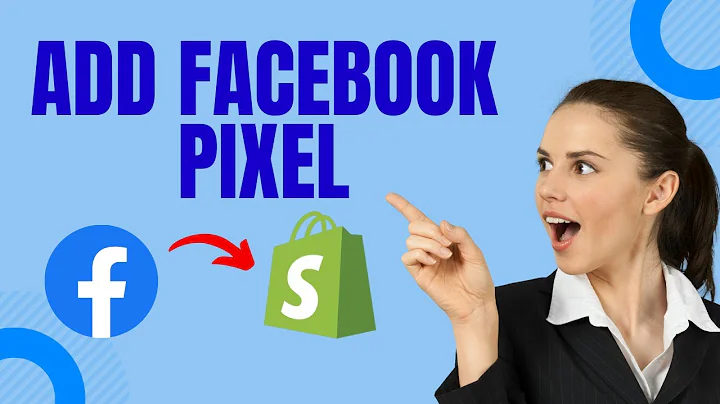Ecwid vs Shopify: Choose the Best Ecommerce Platform
Table of Contents
- Introduction
- Pricing and Packages
- Ecwid Business Package
- Shopify Basic Package
- Features
- Ecwid's Multiple Channels
- Shopify App Store
- Hosting and Performance
- Ecwid's Hosting System
- Shopify's Hosting System
- Getting Started
- Ecwid Signup Process
- Shopify Signup Process
- Dashboard and User Experience
- Ecwid's Dashboard
- Shopify's Dashboard
- Product Management
- Adding and Organizing Products in Ecwid
- Adding and Organizing Products in Shopify
- Inventory Management
- Managing Inventory in Ecwid
- Managing Inventory in Shopify
- Order Management
- Ecwid's Order Management System
- Shopify's Order Management System
- Customizing the Look and Feel
- Theme Customization in Ecwid
- Theme Customization in Shopify
- Support
- Ecwid's Support Options
- Shopify's Support Options
- Conclusion
Ecwid vs. Shopify: A Detailed Comparison of e-commerce Platforms
Are you torn between choosing Ecwid or Shopify for your e-commerce store? In this article, we will delve into the price, performance, features, user experience, product and inventory management, order management, customization options, and support offered by both platforms. By the end of this comparison, you will have a clear understanding of which platform best suits your needs.
1. Introduction
When it comes to e-commerce platforms, two of the biggest players in the industry are Ecwid and Shopify. In this article, we will examine these platforms side by side, looking at their pricing, performance, features, user experience, product and inventory management, order management, customization options, and support. Whether you're a small business owner or an aspiring online entrepreneur, choosing the right e-commerce platform is crucial for your success. So, let's dive in and explore the pros and cons of Ecwid and Shopify.
2. Pricing and Packages
2.1 Ecwid Business Package
Ecwid offers various packages, and for this comparison, we will focus on the Ecwid Business Package priced at $35 per month. This package includes features like the ability to list up to 2,500 products on your website, unlimited bandwidth, no turnover limit, no transaction fees, unlimited data storage, and a free SSL certificate.
2.2 Shopify Basic Package
On the other hand, Shopify offers their Basic Package priced at $29 per month. This package includes features similar to Ecwid's Business Package, with the only difference being that Shopify charges a 2% transaction fee for payments received through payment gateways other than their own Shopify Payments.
In terms of pricing, Ecwid is slightly more expensive, but when factoring in the transaction fee charged by Shopify for non-Shopify Payments transactions, the difference evens out.
3. Features
3.1 Ecwid's Multiple Channels
A standout feature of Ecwid is its ability to sell on multiple channels. With Ecwid, you can sell products on Facebook, Instagram, and even manage your Amazon and eBay stores directly within the Ecwid dashboard. This centralized management of multiple channels is a great advantage for businesses looking to expand their reach and diversify their sales channels.
3.2 Shopify App Store
On the other hand, Shopify prides itself on its extensive app store. With over 3,000 apps to choose from, Shopify users have access to a wide range of functionalities and extensions to enhance their online stores. Whether you need marketing tools, SEO optimization, or inventory management, chances are there's an app available on Shopify's app store to meet your needs.
4. Hosting and Performance
Both Ecwid and Shopify provide robust hosting systems for their users. They offer unlimited bandwidth, unlimited data storage, and use PCI compliant servers, making it easier for users to achieve PCI compliance when using traditional payment gateways. Additionally, both platforms have a global Content Delivery Network (CDN), ensuring fast load times for your website regardless of your location or your customers' locations.
In terms of performance testing, while Ecwid's integration with other platforms makes it challenging to test directly, it has consistently demonstrated fast and reliable load times. Shopify, on the other hand, has performed exceptionally well in load time tests on customer example websites, with an average load time well within the desired two-second window.
5. Getting Started
Getting started on both Ecwid and Shopify is straightforward and requires minimal effort. Ecwid allows you to sign up with just an email address and password, without the need for credit card information. They even offer a free package for life, which you can later upgrade to the Venture or Business Package. On the other hand, Shopify offers a 14-day free trial for users to explore the platform before committing.
Upon logging into Ecwid's dashboard for the first time, you are greeted with a comprehensive startup guide that walks you through everything you need to do to set up your website properly. Shopify, while lacking a comprehensive guide, offers a video series that covers all the essential steps and provides helpful hints and tips. Both platforms have intuitive dashboards that are easy to navigate, making it quick to get up and running.
6. Dashboard and User Experience
Both Ecwid and Shopify have user-friendly and well-laid-out dashboards that are intuitive to navigate. Ecwid's dashboard is clean, easy to understand, and offers clear labels on sidebar navigation menus and submenus. In addition, Ecwid provides a startup guide within the dashboard, showcasing each feature and allowing users to explore and understand their functionalities. This makes it a breeze for users to become familiar with the Ecwid dashboard.
Shopify's dashboard has a minimalistic design and offers a simple sidebar navigation menu. It provides ample space and avoids clutter, resulting in a clean and user-friendly interface. While Shopify lacks a detailed startup guide within the dashboard, their video series is a valuable resource for users looking to learn more about setting up their Shopify store.
7. Product Management
Managing products is a crucial aspect of running an e-commerce store, and both Ecwid and Shopify offer user-friendly interfaces for this purpose. In Ecwid, products are called "cutalogs," and adding new products is as simple as clicking on the "Products" tab and then the "Add New Product" button. Ecwid's tab layout allows for easy navigation and organization of product details. While managing inventory can be time-consuming in Ecwid, as it must be done individually for each product, the ability to create parent categories and subcategories makes organizing products a breeze.
In Shopify, adding and managing products is straightforward. The one-page layout makes it easy to fill out product details and customize the appearance. Shopify's inventory management system allows you to quickly update stock quantities in bulk, saving time and streamlining the process.
8. Order Management
Efficient order management is essential for any e-commerce store, and both Ecwid and Shopify offer robust systems to help you stay on top of your orders. Ecwid's order management system is exemplary, allowing you to mass update, print, export, change payment and fulfillment statuses, and even delete orders. This level of control and flexibility makes managing orders in Ecwid a breeze, particularly if you have a high volume of orders to handle.
Shopify's order management system, while functional, lacks the ability to print orders in bulk from the order overview menu. However, you can individually fulfill orders, change order statuses, and export orders for use with third-party management systems. Additionally, Shopify offers a community support forum where you can find information, ask questions, and interact with other Shopify users.
9. Customizing the Look and Feel
Customizing the look and feel of your e-commerce store is crucial for branding and creating a unique online presence. Ecwid's theme customization is limited to changing the header section of your website, while the rest of the page remains the same. While you can add and remove sections and perform tweaks such as adjusting image sizes and layouts, the number of sections available is limited. This can result in a lack of versatility and customization options for the rest of your site.
Shopify, on the other hand, provides an extensive customization experience through its customizer tool. Users can add, remove, and customize sections of their homepage, select from a stock image library, and have granular control over the appearance of their website. However, the same level of customization does not extend to the rest of the site, limiting your ability to create unique pages outside of the homepage.
10. Support
Access to robust support is crucial when running an e-commerce store, and both Ecwid and Shopify offer various support options. Ecwid provides a comprehensive help section with articles and videos covering various topics. Users can also contact support via email, live chat, or phone, with 24/7 availability for live chat and email. The response time and quality of support from Ecwid have been consistently positive.
Shopify offers 24/7 support to all users, although accessing support can be slightly cumbersome. Users need to navigate through the help center to find the contact support page, where they can then send inquiries via email or chat. Shopify also has a community support forum where users interact and share information and experiences.
11. Conclusion
In conclusion, while both Ecwid and Shopify are popular e-commerce platforms, Shopify edges ahead due to its comprehensive website builder features and extensive customization options. However, it's important to note that Ecwid's integration with platforms like WordPress fills the gaps where it might lack as a standalone platform. Ultimately, the choice between Ecwid and Shopify will depend on your specific needs and preferences.
To make an informed decision, we recommend checking out our detailed written review on e-commerce gold, where you can find more in-depth information on the features and functionalities of both platforms. Additionally, you can visit the websites of Ecwid and Shopify to explore their offerings and even take advantage of their free trial periods.
Remember, choosing the right e-commerce platform is essential for the success of your online store, so take the time to thoroughly research and compare your options. Good luck on your e-commerce journey!
Highlights
- Ecwid offers the ability to sell on multiple channels, including Facebook, Instagram, and Amazon, while Shopify has an extensive app store with over 3,000 apps to enhance your online store.
- Both platforms provide robust hosting systems with unlimited bandwidth, unlimited data storage, and PCI compliant servers.
- Getting started is straightforward on both platforms, with Ecwid offering a free package for life and Shopify providing a 14-day free trial.
- Ecwid's dashboard is well-laid out and intuitive, while Shopify's dashboard is minimalistic and offers a simple sidebar navigation menu.
- Managing products is user-friendly on both platforms, with Ecwid allowing the creation of parent categories and subcategories, and Shopify providing a streamlined one-page layout.
- Ecwid's order management system is comprehensive, allowing bulk updates, printing, exporting, and more, while Shopify's system lacks the ability to print orders in bulk.
- Shopify provides extensive customization options through its customizer tool, while Ecwid's theme customization is limited to the header section.
- Both platforms offer support options, with Ecwid providing 24/7 email and live chat support, and Shopify offering 24/7 support via email and a community support forum.
FAQ
Q: Which platform offers better customization options?
A: Shopify provides more extensive customization options, allowing users to customize sections of their homepage. However, Ecwid offers some customization options, particularly within the theme customization settings.
Q: Can I sell on multiple channels with Shopify?
A: While Shopify doesn't have built-in multi-channel selling like Ecwid, it offers the ability to connect with various sales channels and marketplaces through integrations and apps available in the Shopify app store.
Q: Does Ecwid have a free plan?
A: Yes, Ecwid offers a free package with limited features that users can use indefinitely. However, to access more advanced features and capabilities, users can upgrade to one of Ecwid's paid packages.
Q: Do both platforms provide support?
A: Yes, both Ecwid and Shopify offer support options. Ecwid provides support through email, live chat, and phone, while Shopify offers 24/7 support via email and live chat, as well as a community support forum.


















